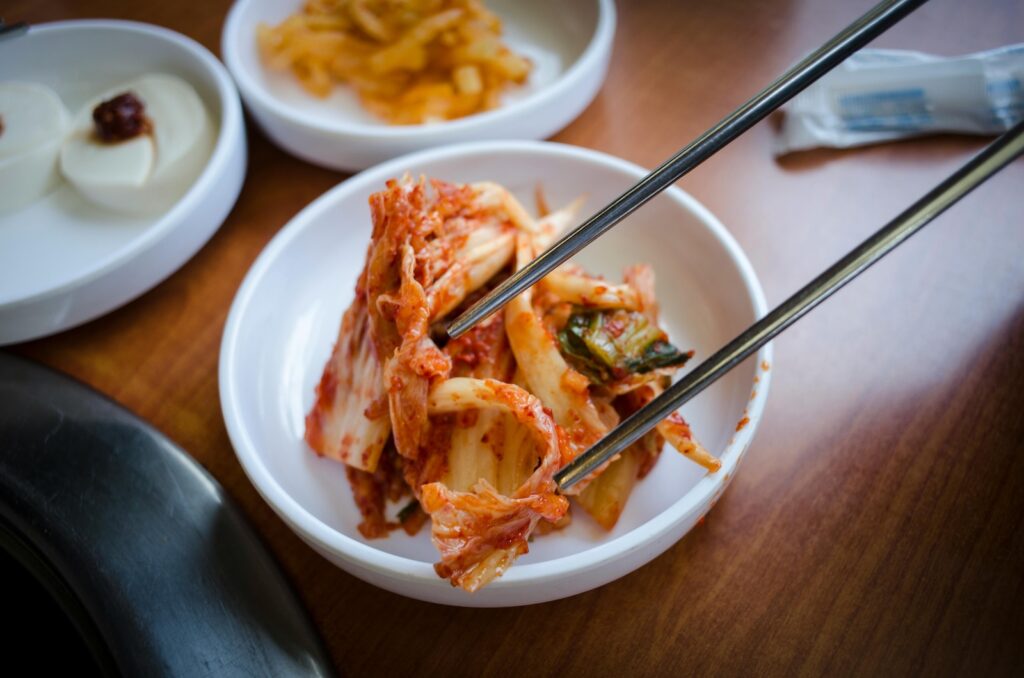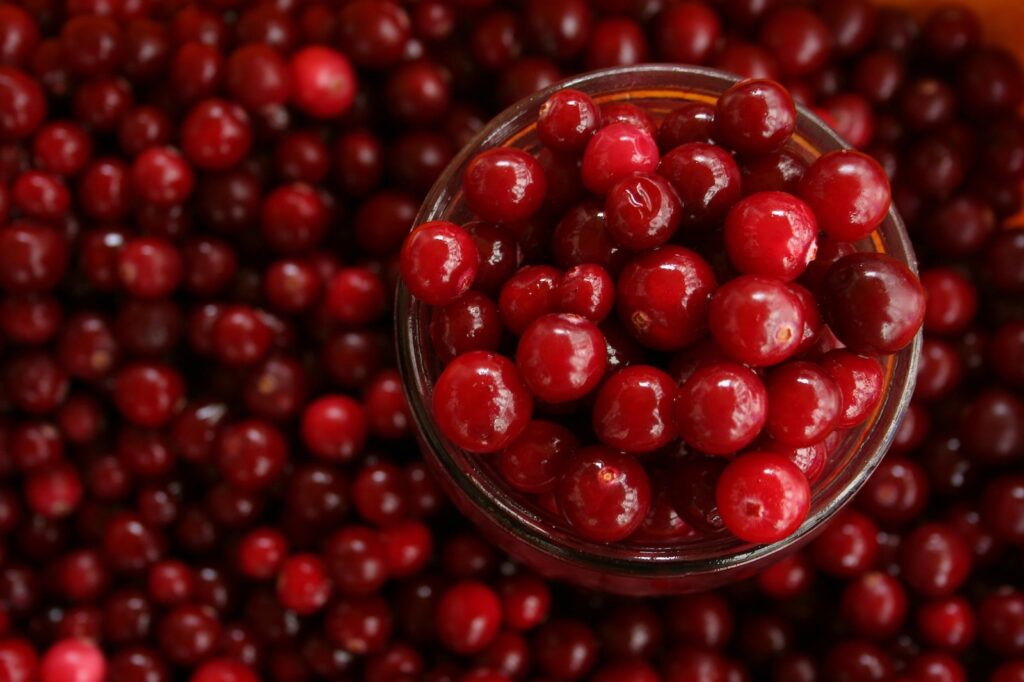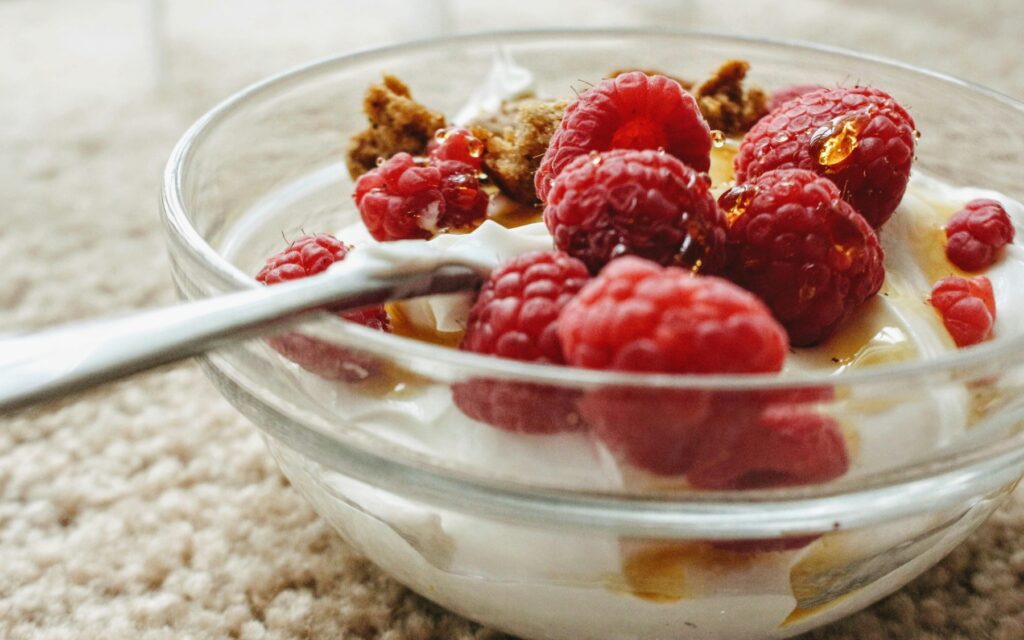Maintaining a balanced diet and getting enough minerals, vitamins, healthy fats, and other nutrients can boost your immunity and reduce the risk of vaginal discomfort and infections such as yeast infections, bacterial vaginosis (BV), and urinary tract infections (UTIs).
What to Eat For Vaginal Health?
Foods aren’t a substitute for medications. However, if you’re dealing with conditions like bacterial vaginosis, UTIs, yeast infections, or itching and dryness, and your current treatments aren’t effective, adjusting your diet could help improve your comfort.
1. Water, water, water!
One of the best foods for vaginal health is water. Water, also known as the elixir of life, plays a vital role in the body’s processes and cellular functions. Staying hydrated is crucial for overall health, including vaginal health, as it helps maintain natural lubrication, which can prevent dryness and irritation.
Tip: Aim to drink at least 8-10 glasses of water daily. Keep a reusable water bottle with you and sip throughout the day.
2. Plain yogurt or kefir
Yogurt and other milk products contain probiotics that help maintain a healthy balance of bacteria in the vagina. Both yogurt and kefir are rich in probiotics, which are beneficial bacteria that help maintain a healthy balance of microflora in the vagina.
According to Journal of Applied Microbiology, we have evidence that probiotics can improve vaginal health. A study found that probiotics can have a positive impact on treating with infections such as bacterial vaginosis.
Tip: Look for plain, unsweetened yogurts and kefirs that are fermented or have live and active cultures.
3. Komucha and Kimchi

Foods that are rich in natural probiotics, such as kombucha and kimchi, can support vaginal health alongside other probiotic-rich foods like yogurt and kefir.
Kombucha is a fermented tea rich in probiotics, which can help maintain a healthy balance of bacteria in the gut and vagina. This balance is crucial for preventing infections, such as yeast infections and bacterial vaginosis.
Kimchi is a fermented vegetable dish that contains lactic acid bacteria, which are beneficial probiotics. These probiotics can help maintain the balance of good bacteria in the vagina, supporting overall vaginal health.
Tip: Look for kombucha with low sugar content and live cultures. Choose kimchi that is naturally fermented and free from preservatives.
4. Fish
Fish like salmon, mackerel, and sardines are high in omega-3 fatty acids, which have anti-inflammatory properties. These fatty acids can help reduce inflammation in the body, including the vaginal area, and support overall cellular health.
Tip: Incorporate fatty fish like salmon, mackerel, and sardines into your diet at least 2 times per week, best baked, steamed or grilled to preserve nutrients.
5. Eggs
In addition to being a high-quality source of protein, eggs are one of the best foods for vaginal health. They are a good source of vitamin D, which plays a role in maintaining the immune system. A strong immune system helps protect against infections, including those in the vaginal area.
Several studies, such as one published in American Journal of Clinical Nutrition, have proven the importance of vitamin D for immune health.
Tip: Boil, scramble, or poach eggs for breakfast or add them to salads, choose organic or free-range eggs for higher nutritional value.
6. Leafy Greens
Leafy greens such as spinach, kale, lettuce, arugula and bok choy are among the best foods for vaginal health. They are high in vitamins A, C, and K which boost immune function and help maintain vaginal health.
These greens can contribute to overall health, including maintaining good vaginal health, by providing essential nutrients that support immune function and healthy mucous membranes.
Tip: Include a variety of leafy greens such as spinach, kale, and Swiss chard and add to salads, smoothies, soups, or sauté as a side dish.
7. Cranberries

Cranberries are among the best foods for vaginal health. Cranberries are known for their ability to prevent urinary tract infections (UTIs) by preventing bacteria from adhering to the urinary tract walls.
Those berries contain compounds called proanthocyanidins that prevent bacteria from adhering to the walls of the urinary tract. This can indirectly benefit vaginal health by reducing the risk of infections.
Tip: Fresh, dried (unsweetened), or pure cranberry juice are all beneficial and best if consumed several times a week.
8. Garlic
Garlic has natural antimicrobial and antifungal properties, making it one of the best foods for vaginal health. Regular consumption of garlic can help protect against infections, including yeast infections, by inhibiting the growth of harmful bacteria and fungi. Several studies have demonstrated garlic’s antimicrobial effects.
Some women can feel the change in their vaginal smell while consuming certain foods. Garlic contains sulfur compounds that, when metabolized, can cause body odors, including vaginal odor, to change. This is generally harmless and temporary.
Tip: Use fresh garlic for the best health benefits, add minced garlic to sauces, dressings, soups, and stir-fries several times a week.
Too Much Garlic Can Change Your Odour
Diet also plays a significant role in body odor. Consuming foods like onions and garlic can result in an onion smell from the vagina, as their compounds are excreted through sweat and other bodily fluids.
9. Nuts and Seeds
Nuts and seeds provide essential fatty acids, zinc, and vitamin E, promoting healthy skin and mucous membranes. Vitamin E is important for maintaining healthy skin and mucous membranes, while zinc supports immune function and wound healing. Omega-3 fatty acids also contribute to reducing inflammation.
Tip: Include a mix of nuts and seeds like almonds, walnuts, chia seeds, and flaxseeds in your daily menu, as you sprinkle it on salads, oatmeal, yogurt, or enjoy as a snack.
10. Sweet Potatoes
Sweet potatoes are rich in vitamin A, which is essential for maintaining the health of mucous membranes, including the vaginal lining. They also contain antioxidants and anti-inflammatory properties that support overall immune function and reduce inflammation.
Tip: Bake, roast, or steam sweet potatoes as a side dish, or use them in soups, stews, and casseroles.
3 Foods to Avoid for Vaginal Health
When considering the best foods for vaginal health, it is important to also keep in mind the foods to avoid.
When you have a yeast infection, avoid sugary foods and drinks as yeast feeds on sugar. Stay away from refined carbohydrates like white bread and pastries, as they can also contribute to yeast growth.
Additionally, avoid alcohol and foods containing yeast, such as bread and beer, to help manage the infection.
1. Sweets and Soda
Yeast feeds on sugar, so it’s crucial to avoid foods and beverages high in sugar. This includes candy, sodas, desserts, and sweetened drinks.
2. Pastry and Bread
Foods like white bread, pastries, and other products made with refined flour can contribute to yeast growth. Opt for whole grains instead.
3. Alcohol and Beer
Alcohol can disrupt the natural balance of bacteria and yeast in the body. It’s best to limit or avoid alcohol consumption, particularly beer, which contains yeast. Also yeast-containing drinks such as beer can exacerbate yeast infections.
Bottom Line
Maintaining vaginal health involves more than just hygiene; diet plays a crucial role as well. While many women have prescriptions to help reduce vaginal infections and discomfort-related issues, there are different preventative methods, and adjusting the foods you eat is one of them.
The best foods for vaginal health provide essential vitamins, minerals, and probiotics that help maintain the balance of good bacteria, support immune function, reduce inflammation, and promote overall health. The best vitamins for vaginal health to look for in your diet are Vitamin A, Vitamin C, Vitamin E, Vitamin D and the Vitamin B complex.
Always consult with your healthcare provider for personalized dietary advice.



